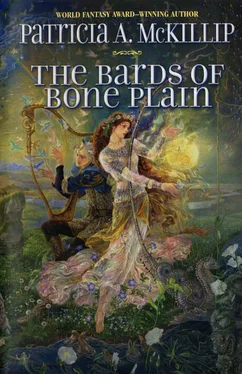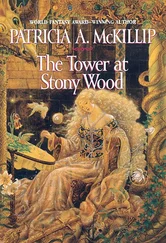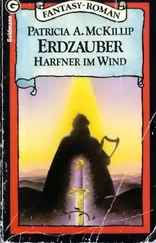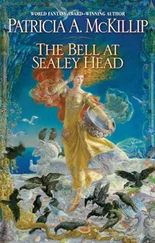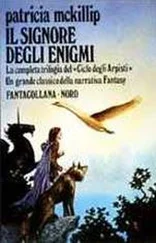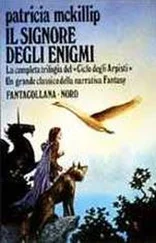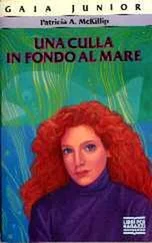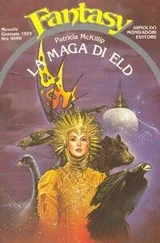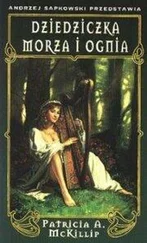Patricia A. McKillip
The Bards of Bone Plain

Phelan found his father at the river’s edge. It was morning, early and very quiet. Tide washed softly along the flank of one of the great, weathered standing stones scattered so randomly on both sides of the river that some said they moved about restively at night when the moon was old. That was one tale of the stones. Another was drifting drunkenly behind a pile of rubble from a wall that had collapsed wearily into the conjunction of water and earth.
I was there when they went to war,
The stones of Bek, the stones of Taran,
And the doughty stones of Stirl.
I saw them rage and thunder. I lived to tell the tale.
Who am I?
Phelan knew the answer to that one: there was no mistaking Jonah Cle’s rich, ragged voice, with the edge of careless mockery in it honed so fine it could flay. He sighed noiselessly, walked along the sucking mud that clung to each footstep. The mist was thick over the Stirl River; the entire plain seemed silent. Phelan might have been alone in the mist, and the world itself beginning all over again but for his father’s voice.
“Who’s there?”
“Much you’d care,” he reminded the pile of stone, and got a soft chuckle out of them.
“Ah. Phelan. Good. I’m down to my last waterfowl.”
Phelan clambered up the broken pile, sat at the top of it, his boots, slimy with mud, propped on a stone at a level with his father’s head. Jonah glanced up, gave his son a twisted smile. His handsome, ravaged, stubbled face was pale; his eyes were fire-rimmed. His long, dark hair was clotted with the leavings of the tide line: broken bird and snail shells, soggy pinfeathers, shimmering fish scales. A hooded homespun cloak he must have filched during his wanderings looked as though he had slept in it on the scabrous bank, washing in and out with the tide, for days.
“I have a message for you,” Phelan told him.
“How did you find me?” his father asked curiously. “You always find me.”
“Maybe I smell you.” Phelan picked a twig out of Jonah’s hair, snapped it between his fingers. “I don’t think about it. If I must go looking for you, I prefer to get it over with as soon as possible.”
“Did she send me some money?”
“No. She wants you home.” His father rolled a narrowed eye at him; he shrugged. “Don’t ask me why.”
“Why?”
“Why not? You have a home. You could stay there and drink.”
Jonah felt around himself at the suggestion, came up with a broken bottle neck. He grunted, dropped it. “I don’t see why I should inflict this on your mother.”
“Then why—”
“Why does she want me? Is it important?” He reached out at Phelan’s silence, seized his filthy boot, shook it. “You know why. Tell me.”
“No,” Phelan said flatly.
“Well, do you have any money?”
Phelan ignored that. He shifted out of reach, leaned back, brooding with the gulls along the bank and looking, with his pale hair and gray eyes, something like one. Like them, he watched the water for a ripple, a sign, direction. Water spoke, broke in a delicate froth upon the worthless clutter it had dredged up and laid like treasure upon the mud. Reeds stirred; a breeze had wakened. It would blow off the mist, the marches of that tiny, private patch of timelessness. Already the half-hidden standing stone nearest him, a blunt, creamy yellow tooth three times the height of a man, was losing its blurred edges, blowing clear.
Phelan murmured, scarcely hearing himself, “I watch the comings and goings of water. Birds know me. I came here from the north, from the land of Noh. Look for me there, watching along the edge of the sea. Here I am, and there, since the beginning of words. What am I?”
His father spat out something between his teeth: a fish scale, an inarticulate comment. He said succinctly, “Answer.”
Phelan laughed a little, soundlessly, at the blank face of the morning. “You answer it,” he breathed. “Tell me what you are. Tell me how I can understand why you are here, sitting in mud and rubble on the river’s edge at dawn in this desolate wasteland.” He waited without expectation. The mist was fraying, pulling threads out of itself to reveal a glint of light, a dead fish floating by, the slab of yet another stone, which had picked itself up and waded, sometime in the past centuries, deeper into the river. Any hope of an answer shredded away with the breeze. He straightened. “I have to go.”
Jonah glanced up at him again, his eyes slitted and glittering under a sudden shift of light. “I won’t like it, will I? What she wants me home for.”
“You can put up with it,” Phelan said wearily. “Take a bath, refill your pockets.”
“You won’t tell me.”
“You know I won’t.”
“Lend me—”
“No.”
Jonah lay back on the rubble, began the litany, intoning it melodically and with charm: “Stubborn, pigheaded, obstinate, iron-hearted, pitiless, remorseless—”
“I know, I know.” Phelan rose, scrabbled back over the pile. “Never a doubt I am your son. I’ll see you there.”
“Where?” the rock pile demanded. He turned his back to it, crossed the weedy road, and nearly fell into his father’s latest vision.
The city was becoming riddled with Jonah’s obsessions, Phelan thought dourly as he caught his balance at the edge of this one. He paused a moment to peer into the shadow, then turned and found his way through the barrens to the bridge across the Stirl.
Midway across, he stepped out of the clammy ambiguities of fog, gray water, stone, into the full astonishment of light.
A long, roofless vehicle, half car, half wagon, gave Phelan a goose’s honk as it passed and sent a plume of steam into the air. He waved, turning for a glimpse of the princess. But the car plunged too quickly into the ribboning mist behind him, carrying the work crew to his father’s inexplicable project. He hoped they wouldn’t run over Jonah along the way. There was no other traffic on that bridge, ending where it did in the broken memories and weed-strewn ghosts of past so distant no one was left there to remember it. Why his father chose to haunt that bleak smudge in the heart of the city, Phelan had no idea.
The rest of the immense royal city of Caerau, cheerfully colored under the sun with riotous hues of marble, paint, and brick, spread itself across half the plain on both sides of the Stirl River. Merchant ships lined the docks, sails furled, engines silent, busily loading and unloading; others had begun to follow the outgoing tide, unfurling sails bright and individual as butterfly wings, to follow the Stirl to the sea. Fishing boats, elegant barges, swift, slender market skiffs plied the water around them. On the crown of the only hill in the city, Phelan could see his destination: the ancient school, the thick-walled building hugging the broken tower rising out of it, making a dark gray stroke among the brighter walls of later centuries around it.
On the noisy, busy streets at the other end of the bridge, he caught a horse-drawn tram to the school on the hill.
He kept a robe along with his books and papers in the oak cupboards lining the staff room in the pink and gray edifice that had been funded by, and named appropriately for, Jonah Cle. Several other of the younger student teachers were pulling on their robes as well, yawning and muttering comments in the early hour. Like Phelan, they were nearly finished with years of study; they lacked only one last subject to master, a class or two to teach, a final research paper, before they could go out into the world and call themselves bards. The robes they wore over their clothes were still the students’ gold and green. But as masters in training, they were allowed to leave them casually unbuttoned, revealing leathers, homespun, silks, brocades, sometimes looking as tavern-glazed and frayed as their wearers.
Читать дальше
